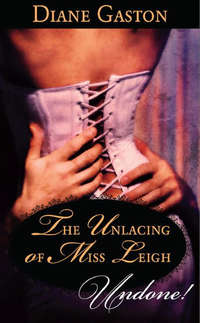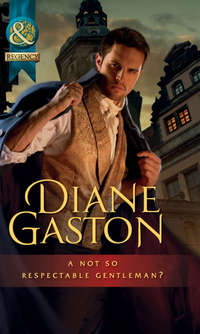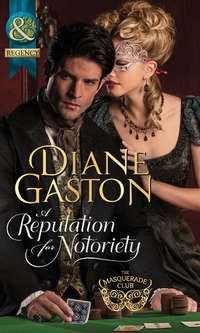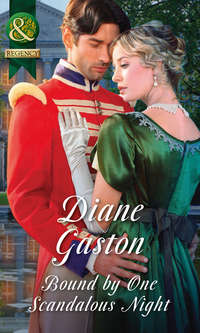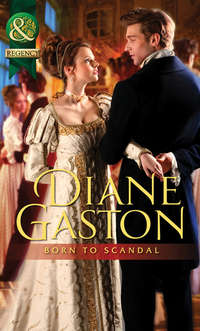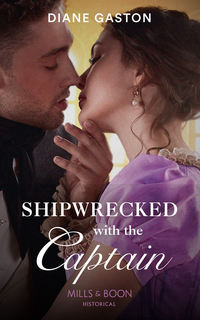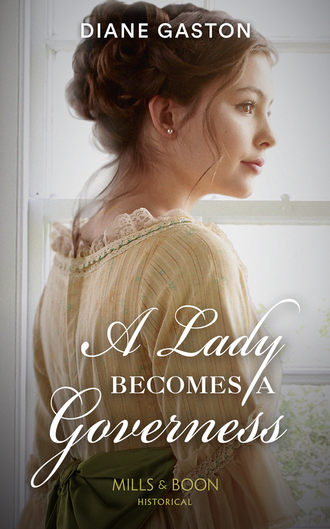
Полная версия
A Lady Becomes A Governess
The seamen were rushed and worried, however. There was a storm brewing, the seamen said. The ladies must remain below.
As the day progressed, Rebecca and Claire talked more about the weather than about their lives. They left the cabin rarely only to check on Nolan, who suffered so much she did not even react when Rebecca, dressed as the governess, attended her.
In the late afternoon, the storm broke, tossing the packet boat even more violently than before.
‘We should be nearing the coast,’ Rebecca said.
‘If the ship can even sail in this.’ Claire’s face—her identical face—paled in fear.
Suddenly shouts and pounding feet sounded from above them, then a loud crack and a thud that shook the boards over their heads. The two women grasped each other’s hands. Their masquerade became unimportant as the wind and sea pitched the ship so constantly that they could not change back into their own clothing.
The gentleman who’d passed them the day before opened the door without knocking. ‘Come above,’ he demanded in a voice they didn’t dare disobey. ‘We must abandon ship. Bring nothing.’
Rebecca defied him, grabbing her reticule containing all her money. When they reached the stairs, she shoved the reticule into Claire’s hands. ‘Here. Take this. I’ll be right behind you. I’m going to get Nolan.’
Claire hung the reticule on her wrist.
‘Miss!’ the gentleman cried. ‘We must leave now.’
‘I will be right behind you,’ she called over her shoulder.
Rebecca rushed to Nolan’s cabin. A seaman was at Nolan’s door. He turned to Rebecca. ‘She refuses to come,’ the man shouted. ‘Hurry! We must get above.’
Rebecca pushed past him and ran to her maid. ‘Nolan! Come with me.’
The older woman recoiled, rolling over and huddling against the wall. ‘No. Sick. Leave me alone.’
‘Come, miss!’ the crewman cried. ‘There is no time to waste!’
‘I cannot leave her!’ she cried.
He dragged her away from Nolan’s door, practically carrying her to the steps of the companionway.
On deck, rain poured as if from buckets, obscuring the chaos Rebecca found above. The mast had splintered in two and lay like a fallen tree on the deck, ropes and sails tangled around it.
‘To the boats!’ the seaman shouted, running ahead.
She followed him, catching sight of Claire and the gentleman at the railing. The ship dipped suddenly and a wave washed over the deck. Rebecca had only a second to grab hold of a rope or be carried in its ebb. When the wave passed and she looked up, Miss Tilson and the gentleman had disappeared.
Her escort seized her arm. ‘Come, miss. No time to waste.’
He pulled her along with him to the side of the ship where other passengers and crew were climbing into a rowing boat that had been lowered over the side. Claire was not among them. Rebecca glanced out to sea, but Claire had vanished. Nolan, Claire and the gentleman were lost.
There was no time for emotion. The crew lifted her over the side as the rowing boat bobbed up and down beneath her. Only with luck did her feet connect with the wood of the boat’s bottom.
The boat filled quickly. Rebecca huddled next to a woman clutching her two children. Beneath their feet was at least an inch of water and more pouring from the sky. Somehow the sailors rowed the boat away from the packet. Through the darkness and rain, a shadow of coastline was visible. Rebecca kept her eyes riveted on it, watching it come slowly closer. Almost in reach.
From behind her a woman screamed.
Rebecca swivelled around to see the packet boat crash against the rocks. At that same moment the rowing boat hit something and tipped.
Rebecca plunged into icy water.
Chapter Two
Garret Brookmore, the new Viscount Brookmore, received word of the shipwreck off the coast of Moelfre while he waited in an inn in Holyhead. This was the packet he was to meet, the one on which the governess was to arrive. There were survivors of the wreck, he was told, and Garret felt obligated to travel to Moelfre to see if Miss Claire Tilson was one of them.
None of this was remotely within his experience. A year ago he’d been in Brussels with his regiment awaiting what became the Battle of Waterloo. For the past ten years he’d battled the French. Then word came that his brother and his brother’s wife had been killed in a carriage accident and he needed to return to England to inherit his brother’s title and all the new responsibilities that accompanied it, responsibilities over which he had no preparation. His older brother had been groomed from birth to be the Viscount. John was the family’s fair-haired boy, able to do no wrong in their father’s eyes, whereas not much was expected of Garret so he’d always been bound for the army.
Now the son from whom the family expected little had an estate to run, Parliament to attend and two little girls, his orphaned nieces, to tend to. Pamela and Ellen, only nine and seven, had been securely in the care of their governess, a long-time retainer of their mother’s family, but fate had not finished being cruel. That woman, too, died.
How much could two little girls take? Their mother. Their father. Their governess. Left with a strange uncle whose heart remained with his regiment. Garret had witnessed thousands of deaths, but these seemed the cruellest.
When notified that his nieces’ governess had died, Garret had been in London attempting to meet society’s expectations of a viscount. He contacted an agency in town to hire a new governess and left his obligations there to travel back to Westmorland to the family’s principal estate, to see to his nieces and await the new governess. He’d barely arrived at Brookmore when the agency sent word to expect Miss Tilson to arrive in Holyhead from Ireland.
What if Miss Tilson had drowned in this shipwreck, though? What was Garret to tell the little girls? That another person who was supposed to care for them had died?
He rode to Moelfre and enquired where the shipwreck survivors might be found. He was directed to the Pheasant Inn, a place bustling with activity.
The innkeeper greeted him. ‘Welcome. Do you seek a room?’
‘I am looking for a survivor of the shipwreck,’ Garret responded.
The man frowned and shook his head. ‘Such a tragedy. Almost forty people lost, I’m afraid. Only eleven made it through.’
That did not sound hopeful. ‘I am looking for Miss Tilson. Miss Claire Tilson.’
The innkeeper broke into a smile. ‘Ah, Miss Tilson! Yes. Yes. She is here.’
Relief washed through Garret. ‘May I see her?’
‘Of course.’ The innkeeper gestured for him to follow. He followed the man up two sets of stairs. ‘She’s been feverish since the rescue. Some men pulled her from the water, we were told. She seemed better today, our maid said. Might not be awake.’
‘I understand.’
The innkeeper knocked and a maid answered. ‘Someone to see Miss Tilson.’
The woman smiled and opened the door wider. Neither she nor the innkeeper asked who he was.
He approached the bed and gazed down in surprise. He’d expected an elderly woman like the previous governess. Miss Tilson hardly looked old enough to be out of the schoolroom herself. Her skin was smooth and flawless; her features strong, not delicate. Her hair, the colour of Kentish cobnuts, fell loose over the white pillow. Would her face fulfil the promise of character shown in her repose? He was intrigued.
He looked over at the innkeeper. ‘I do need a room.’
‘Yes, sir, I can accommodate you,’ the man answered. ‘Would you like to come with me now? I will show you to the room.’
Now that he’d found Miss Tilson, he was reluctant to leave her. ‘I will stay until she wakes up. So she knows I am here.’
She was bound to experience distress, waking in a strange place, after nearly drowning.
The innkeeper reached for Garret’s valise. ‘I’ll take this to the room and come back with your key, if you like.’
Garret nodded his thanks.
The maid spoke up. ‘May I leave, sir? I am very hungry. May I get food?’
The innkeeper glanced towards Garret.
‘I have no objection.’ Far be it from Garret to deny a hungry girl, so he wound up alone, seated at the bedside of a beauty he did not know, but for whom he was now responsible.
* * *
An hour passed, an hour spent with swirling thoughts of all he must remember to do, of all he’d learned needed his attention at the estate and even more demands in London and how much he wished he were simply marching with his men on some foreign road bound for the next battle. He missed his men. Worried about how they were faring. The war was over. Napoleon was on St Helena. Regiments were disbanding.
What was the use of wishing for what could not be? Even if his brother had not died, his army life would have changed drastically.
He had to admit he’d travelled to Holyhead mostly to give himself time away from these duties and regrets. Time to think. He could have easily sent a servant to escort her to the estate.
He rose when the innkeeper brought his key. As he settled back in the chair next to the bed, Miss Tilson’s eyes—unexpectedly hazel—fluttered open.
‘Where?’ she managed, her voice cracking.
He poured her a glass of water from a pitcher on the bed table. ‘You are safe, Miss Tilson,’ he told her. ‘You are at an inn in Moelfre.’
Her brow creased as if she were puzzled. ‘Miss Tilson,’ she whispered. ‘Claire.’
He helped her to sit and held the glass as she drank. ‘I am Lord Brookmore.’ It still sounded strange on his tongue. In his mind Brookmore was still his brother. ‘Your employer.’
She stared at him a long time and it seemed as if he could see a range of emotions flit through her eyes. Puzzlement, horror, grief and, finally, understanding.
* * *
Rebecca’s heart pounded in her chest. This was not another fever-filled vision, but a real man touching her, helping her drink. Once she quenched her considerable thirst, she became acutely aware that she wore only a thin nightdress. From where? From whom? Had even the clothes she’d worn—Claire Tilson’s clothes—been lost? Her throat tightened again, but this time from grief. Claire. Nolan. All those poor people.
She shrank away from the man and he sat back in his chair, placing the glass on the side table.
He was Claire’s new employer, he’d said, and he thought she was the poor governess who’d been swept away by that killing wave. He did not look like a man who would hire a governess. His rugged face and muscular frame made him look untamed. His piercing blue eyes seemed a thin shield against painful remembrances. Dark hair, longer than fashionable, was as windswept as a man who’d galloped over fields on a wild stallion. The shadow of a beard covering a strong jaw gave him a rakish air.
Her eyes darted around the room. Why was such a man alone with her? She certainly had never before been alone with a man in her bedchamber, in her night clothes.
‘Why—?’ Her throat closed again and she swallowed. ‘Why are you here?’
His blue eyes fixed on her. ‘I waited at Holyhead. News came of the shipwreck so I rode here to see if you’d...survived.’
The shipwreck. Again she watched the wave consume Claire. Again she felt the rowing boat smash against rocks and plunge her into the water.
She shivered with the memory and he rose again, this time to wrap a blanket around her shoulders. Her skin heated at his touch.
She looked up into his face. ‘How many? How many survived?’
‘Eleven, the innkeeper said,’ he replied.
Only ten others? What about the woman and her two children? Were they swept out to sea like Claire and the gentleman with her? Her eyes stung with tears.
‘My God.’ She dropped her face into her hands and sobbed.
She could feel him staring at her, even though he was still and silent. How humiliating to become so discomposed in front of this stranger. It was so unlike her.
She wrested some control, finally lifting her head and taking deep breaths.
Without speaking, he pulled a handkerchief from his breast pocket and handed it to her. She wiped her tear-soaked face.
The handkerchief was still warm from his body.
‘Thank you.’ She took another deep breath and started to return the now soaked handkerchief. She pulled it back, laughing drily. ‘I—I will have it laundered.’
What a silly thing to say. She had no means of getting it laundered. She had no money. No clothes. Nothing.
She, of course, could identify herself. Send word to London of her predicament. To Lord Stonecroft. Who else was there to help her in London? But why would she want to ask for his help when she wanted to escape him? Being his brood mare seemed even worse than drowning.
Lord Brookmore sat back in his chair again, his face averted.
She should tell him she wasn’t Claire Tilson, that she saw Claire washed overboard.
Oh, why had Claire drowned and not her? Claire had independence. She had work for which she earned her own money and she also had the hope of finding a man to love her some day. Claire would have fared so much better than Rebecca, who had nothing to look forward to but a prison of a marriage. Why could fate not have let them trade places in death as easily as they’d worn each other’s clothes?
She stole another glance at Lord Brookmore and her heart quickened.
He thought she was Claire. Perhaps she was the only one who knew she was really Lady Rebecca Pierce, doomed to marry Lord Stonecroft.
She could not die in the watery depths instead of Claire. She’d have been willing to do so. But she could trade places with Claire now. She could live Claire’s life for her.
Escape her own life.
Lord Stonecroft would not mourn her; he’d merely be annoyed that he must search for another brood mare to marry. Her brother would not mourn her. He’d get to keep her dowry. She could not sacrifice her life instead of Claire’s, but she could become Claire.
Guilt pricked at her. She’d be deceiving this very handsome man. What a way to repay his kindness.
He did need a governess, though, did he not? She could be a governess. How hard could that be? It would help him, would it not?
‘I—I had a fever, I think,’ she said. ‘I don’t remember much except—’ Except plunging into churning, cold water and thinking she would die. ‘Except the wreck.’
His eyes fixed on her again. ‘I know nothing more than you were saved and you were ill.’
‘Am I still to be your nieces’ governess?’ Will he accept her as Claire? she meant.
‘If you feel up to the task, yes.’ His voice was stiff and formal and so deep she felt the timbre of it as well as hearing it. ‘If you need a long recuperation—’
‘I am well enough.’ She sat up straighter as if to prove it. ‘I am quite recuperated.’
‘Good.’ He stood. ‘I will send for the maid and some food, if you are hungry.’
She didn’t really know if she was hungry, but the mention of food made her stomach growl. ‘Thank you, sir.’
He nodded. ‘We can travel to Brookmore House as early as tomorrow, if you are able.’
Better to leave soon, although, out of ten other survivors, who was likely to know she was not Claire? Someone must have already identified her as such. ‘I will be ready for travel tomorrow. I am certain.’
He nodded. ‘Very good. Anything you need, Miss Tilson, just ask for it. I will see that it is provided to you.’
She glanced down at herself. She needed everything! Lady Rebecca would not hesitate to enumerate each necessary item, but she could not imagine Claire doing so.
‘Thank you, sir,’ she murmured instead.
‘I will take my leave, then.’ He inclined his head. ‘Miss Tilson.’
‘My lord,’ she responded.
After he walked out the door she threw off the covers and climbed out of bed, suddenly restless. The wood floor was cold beneath her bare feet and her legs were weak. She made her way to the window and looked down upon a village street, its whitewashed buildings glowing in the waning light of early evening. Wagons and carriages rumbled by and villagers hurried here and there as if this day was like any other.
Her days would never be the same, though. A frisson of trepidation rushed up her spine. She was about to become a whole new person.
She rubbed her arms and smelled the faint scent of the sea on her skin. She did not want to smell the sea! She wanted to banish the memory of plunging into the water where so many others died.
There was a rap at the door and a maid entered, carrying a tray. The scent of stew and cheese and ale seemed to affirm her choice of life. A new life.
‘Oh, you are up, miss,’ the maid said. ‘Are you feeling better? The gentleman gave me some coins and said to bring you food and whatever you need.’
Rebecca seated herself at a chair next to a small table. ‘I am much better. I am afraid I was too feverish—what is your name?’
‘I’m Betty, miss.’ The maid put the tray of food on the table. ‘What else might I bring you?’
Dare she ask? She did dare, because she needed to feel renewed. ‘I would love a bath, Betty.’
The maid smiled. ‘A bath you shall have then, miss.’
‘And I will need some clothes.’
* * *
By the next morning, Rebecca was not only clean and well fed, but also clothed.
The maid, Betty, brought her undergarments and a dress. ‘His lordship said to find you clothes and so I did,’ she’d said. ‘The ones you wore before were ruined.’
Claire’s clothes.
Betty helped her into the simple shift, a corset that fit tolerably well and a plain dress, not unlike the one Betty herself wore. The stockings looked newly purchased and the shoes, well-worn half-boots, were only slightly too big. Included in the bundle of clothes had been a new brush and comb, as well as a set of hairpins. Betty helped pull her hair back, as Claire had done.
Rebecca looked at herself in the mirror, but in her reflection she could only see Claire Tilson. Her eyes again filled with tears.
She blinked them away.
‘I’ll tell his lordship you are dressed,’ Betty said, hurriedly making up the bed. The maid left and a moment later Lord Brookmore entered.
‘Good morning, sir.’ Rebecca remembered to curtsy deferentially. This was her employer, after all. His presence made her a bit breathless, but that must be only nerves. She was lying to him, after all. It was not because he was very tall and very masculine.
‘Miss Tilson.’ He nodded. He handed her a bundle wrapped in paper. ‘I took the liberty of purchasing items you will no doubt need on the journey to Brookmore.’
She untied the string around the bundle and unfolded the paper to reveal a paisley shawl, a silk bonnet and lavender kid gloves.
‘These are lovely,’ she whispered. Every bit as fine as she’d once owned.
He nodded in response. ‘How are you today? We need not travel if you are not sufficiently recovered.’
‘I am well!’ she assured him. She was eager to start her new life.
Claire’s life.
She looked up from the items. ‘Thank you for these. Thank you for the clothing, as well.’
He shrugged. ‘You needed something to wear.’
Everything that had belonged to Rebecca Pierce was gone.
He stood just inside the door. Her impulse was to invite him to sit, to order tea, just as she might have done at home in Ireland. How foolish! She had no means to order tea and did a governess even invite a viscount to be seated?
It would take a little work to rid herself of Lady Rebecca.
He looked uncertain, his blue eyes finding hers only fleetingly. ‘I will arrange for a carriage, then. If you are certain you are ready.’
‘Quite ready,’ she replied.
She crossed the room to retrieve his handkerchief, which she had washed with the soap and water provided for her and dried in front of the fire. It was not pressed, but this had been the best she could do with no means to hire someone for the task.
She handed the handkerchief to him. ‘It is clean, sir.’
As he reached for it, his gaze lingered on her. Their fingers brushed and she felt a flush warm her skin. She stepped back.
He cleared his throat. ‘I will see to the carriage.’
He turned and left.
Chapter Three
The carriage Lord Brookmore arranged was a small two-horse landaulet with two coachmen on the box. It was comfortable enough, but if she’d had to share it with the Viscount, it would have seated them so close their bodies would have touched. Luckily he rode on horseback, so she did not have to face being in such intimate quarters with him. Unfortunately it also meant she had no company at all.
For half the day, the road skirted the sea whose sight and scent made it impossible to forget the terror and loss she’d endured from its violence. There was nothing to divert her thoughts away from those memories. With every glimpse of waves outside her window, she relived the shipwreck.
She tried to look away, out the window that did not face the sea. Occasionally Lord Brookmore rode next to the carriage and asked her how she fared. She always replied that she did very well. The truth could not be easily explained. Other than that, she was silent, even saying little during their brief contacts when they stopped only long enough to change horses and procure food which she ate in the coach.
Eventually the sea disappeared from view, replaced by farms and fields and small villages. Rebecca’s nostrils filled with the odour of growing things. Of life instead of watery death, but still, being alone, her thoughts drifted back to the sea.
Lord Brookmore, who looked even more imposing on horseback, again appeared beside the carriage. ‘We are nearing Chester. We will spend the night there.’
* * *
At the inn in Chester, Garret dismounted and handed his horse off to the waiting ostler. The carriage pulled in behind him and one of the coachmen jumped down to help Miss Tilson descend the steps. Garret stood nearby, his valise in hand.
Miss Tilson carried only a small bag with those few items he had purchased for her.
In the waning sun, she looked even paler than when they’d started the journey. He’d suspected then that she was not recovered enough. Now he kicked himself for not insisting she rest in Moelfre at least one more day. He’d been impatient to return to Brookmore House, though, eager to see her settled and his nieces comfortable, and matters set to rights. Brookmore House still felt like his brother’s house, not his, even though he’d grown up there. Of course, when he’d been a child he’d been constantly reminded that his brother was the heir, the eventual owner of the estate.
He needed to return to London, although he was not as eager as he ought to be. He’d been swept up in events in London. It had been like watching another person negotiating that society and its expectations. Not him. Not at all him.
But it had been what he must do. Colleagues of his brother and father guided him through the ceremony, customs and politics of the House of Lords and of what was expected of a viscount there.
He needed to secure the inheritance, they’d insisted. His family would lose everything to some distant relation if he did not beget an heir. He’d seen the logic in that and so had done his duty. Attended the marriage mart. Became betrothed.
Lady Agnes was the perfect choice, his advisors assured him. He agreed. She was the daughter of the Earl of Trowbridge. She was polished, pleasant, accomplished and beautiful. She’d be the perfect hostess. There was absolutely nothing to object to in Lady Agnes.
Except Miss Tilson pulled more emotion from him than Lady Agnes ever had.
He stepped towards the governess and reached for her small bag. ‘You look fatigued. I will arrange a room for you and have a meal sent up to you.’
She gave him a stricken look that he did not understand, but he took her bag and she fell in step with him to the door of the inn.




